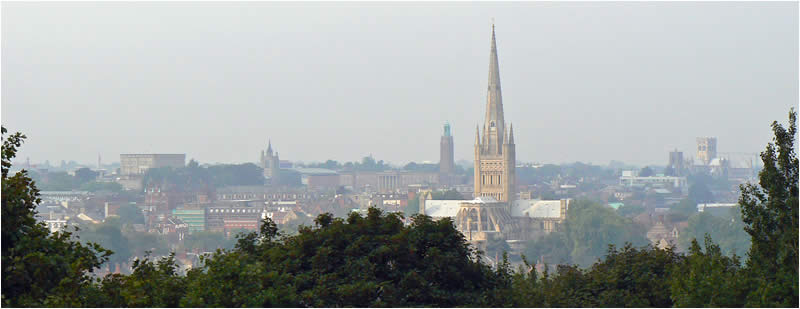
One might well ask what it is about certain passages of prose that make them seem like poetry. Is it some quality of language? Alliteration? Use of metaphor? Onomatopoeia? Euphony? Approximation to certain kinds of rhythm or metre? Some version of particularly fine 'fine writing'?
It isn't hard to imagine prose deploying any number of poetic devices to achieve a heightened state. At worst we might have what used to be called 'purple prose' which implies a degree of over-writing. Fancy writing. What is poetic prose at best? Passages out of The Authorised Version of the Bible? Thomas Traherne's 'Centuries of Meditations'? Virginia Woolf? Marcel Proust? Henry James?
Might part of a novel, perhaps even a whole novel, register as poetry? Woolf's The Waves is often perceived as a form of poem.
On the other side of the question, don't we assume that the point of syntax is to move the mind on to a full stop? That the whole directional flow of a sentence, and the flow of the sentence into a paragraph suggests a forward motion in which the individual words are stepping stones to something located up ahead? If so, is prose that deploys a lot of poetic devices a weakening of the robust nature of the sentence? Cannot early Evelyn Waugh or Christopher Isherwood or Ernest Hemingway or, John Bunyan for that matter, be equal to the greatest poetic-prose writers?
I don't think the attempt to define poetry as verse can be based on a distinction between fancy and plain, between high-flown and dirty realism, between inspiration and intelligence. It is not a matter of texture, density, rhetorical level, nobility of purpose, or super-refinement of idea.
In his Eliot lecture, the year before mine, Don Paterson more or less defined poetry as something written by a poet. My question, the following year, was who was going to declare the poet a poet before he or she had actually written anything? I understood the nature of apostolic succession and the laying on of hands, I just wanted to be sure that this wasn't simply a club. Oh, don't you worry your head about that, my dear chap, one imagines the anointed and the anointer saying to the outsider. Which is the point I turn sans-culotte.
*
Since we are on Eliot territory here I want to go back the core image I used at the time in my own lecture, the frozen pond out of Edmund Blunden's 'The Midnight Skaters'. It is the ice and the skaters on it I want to return to.
The idea there was that language was the thin ice over a very large, deep and murky pond, at the bottom of which lay death. Some people with business to conduct might simply skate across. The ice for them is an obstacle they have to get over. Some might enjoy the skating sufficiently to think of the ice as clear crisp prose. Other will want to make patterns with apparently no other purpose than to make patterns.
Making patterns, I argued in 2005, and again in Brighton last week, is the poetic vocation. The only difference between someone doodling patterns on a sheet of paper and the midnight skaters is that the latter move across frail, easily cracked ice. The skating is important enough for them risk the ice.
The pattern on the ice is an affirmation of the ice. Language is like ice because it is as frail and unreliable as ice over water. Language is a system built on arbitrary equivalences. Each word of language is a nonsense held in place by the tension of syntax and association. Falling through language is falling into chaos. In order to skate the skater must move in complicity with the ice while cutting it. Cliches occur when the same cut is made time and again, so the skater falls through. The skater needs an instinctive - or rather some learned and internalised understanding of the character of the ice: its density, its thickness, its weak spots, the speed it allows, the movements it permits.
Metaphors are traps. We invent them then find ourselves caught in them. The poet does not risk death by writing a bad poem, but maybe the language moves one step nearer death in that part of the pond. We needn't follow the ice metaphor all the way through. But let's remember that there is a risk in poetry: the risk of failure. Let's remember the poet Rooney whose bicycle kick might have ended in nothing better than an embarrassing, painful landing and dented pride. We value the gambit because of the risk. The risk affirms the game.
The patterns on the ice are what is possible: the idea is to risk the difficult. The football pitch is of limited dimensions, so is the pond.
What is it makes the skater skate such patterns? Is it simply because the ice invites skating? Partly. But at the same time it is also something in the skater, something in the skater's experience or constitution, some experience that is rather like a subject - but not a subject alone, more a condition produced by various subjects distilled into a condition that says 'Skate!'
Almost anything that directs our attention to the tragic yet joyful nature of the ice - which is also our condition - is to the benefit of the skating. Almost anything that points to the fragility and otherness of language is to the benefit of the poem.













